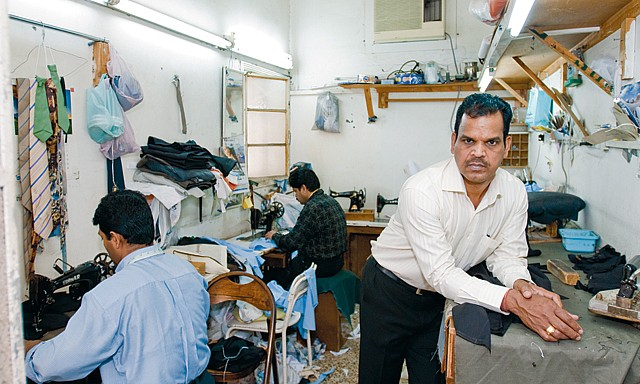
Language in fashion and sustainability

- Written byPost-Grad Community
- Published date 20 April 2021

On Thursday 4th March, the Fashion and Ethnicity Post-Graduate Interest Group hosted an interactive workshop called “Language in Fashion and Sustainability” led by Rawan Maki, PhD Candidate at London College of Fashion.
Through a series of guided reflected exercises, attendees considered the material, cognitive, and social aspects of objects which they had brought along. They discussed how each related (or not) to the concept of sustainability.
Participants’ objects included a luxury silk bridal brocade, an homemade throw pillow crocheted from leftover yarns, a cotton tote bag, a vessel made using heritage materials, and a zip lighter gifted from an uncle. Whilst the objects were all different, similar reasons were cited for choosing them as “epitomes of sustainability”. Functionality, modularity and ease of use contrasted with sentimentality and inheritance of family gifts or culturally-specific objects.
Rawan then shared emerging findings from her research on language and sustainability within the Bahraini fashion context. Terms used in this local sustainability discourse showed a mixture of culturally embedded views towards over-consumption and Western-loaned terms and concepts. Other terms highlighted fashion space cultures—such as the mall or souk—and their social systems as a dominant force and locations of public gatherings.


Rawan also discussed the application of these exploratory language methods in her research. She underscored that exporting notions of sustainability often re-enforces colonial relations where progress is measured by Western standards.
Rawan asserted that the Gulf must be viewed as both postcolonial as well as neo-colonial in itself, in its relation to its own subaltern groups. This duality is imperative to developing a post-oil fashion identity and an honest “sustainability”.
Language may be a starting point to understand the local social systems surrounding fashion and may clarify what is valued within a society—what should be kept, what should be built upon, and what needs to change when transitioning towards sustainability.

Next Meet
Fashion and Ethnicity's next meeting will be on Thursday, 6 May 2021 at 2 pm and will be led by Kadian A Gosler – chairing a session on race, fashion, and the gaze titled 'Can I wear this? Should I wear this?: Who is allowed the pleasures of fashion?' She explores the violent gaze that threatens to alter and erode the wearers' experience of clothing. A group discussion will follow, exploring the use of reflexivity and auto-ethnography as a method to interrogate fashions' limitations and subvert patriarchal colonialism control on whose experiences matter.
Please RSVP via email to fashionandethnicity@gmail.com.
The Fashion & Ethnicity Post-Grad Interest Group meets on the first Thursday of each month online.
Open to PhD and MA students at UAL
The group aims to be an open, inclusive group which welcomes postgraduate students at UAL and other interested parties.
Importantly, the group will host both researchers and practitioners, teachers and students, to facilitate new ways of understanding by providing opportunities for inter-disciplinary collaboration.
For more information about the group and what to expect from the meetingds, please visit the Fashion and Ethnicity Interest Group page.
Post-Grad Interest Groups
UAL’s Post-Grad Community supports a growing number of issue-specific, cross-disciplinary interest groups led by postgraduate students and academics.
These groups connect creatives with shared research/practice interests across different specialisms and subject areas.
PhD students have launched interest groups in the past to coincide with exhibitions and symposiums that they have organised under the same theme. Students have also used Interest Groups as a working group towards research or a standalone event or series.
Want to start an Interest Group?
Visit the Post-Grad Interest Group Directory